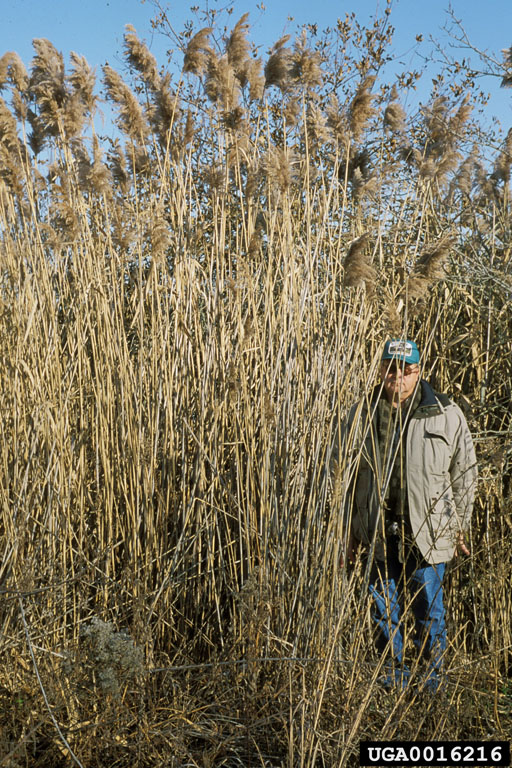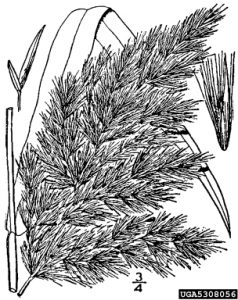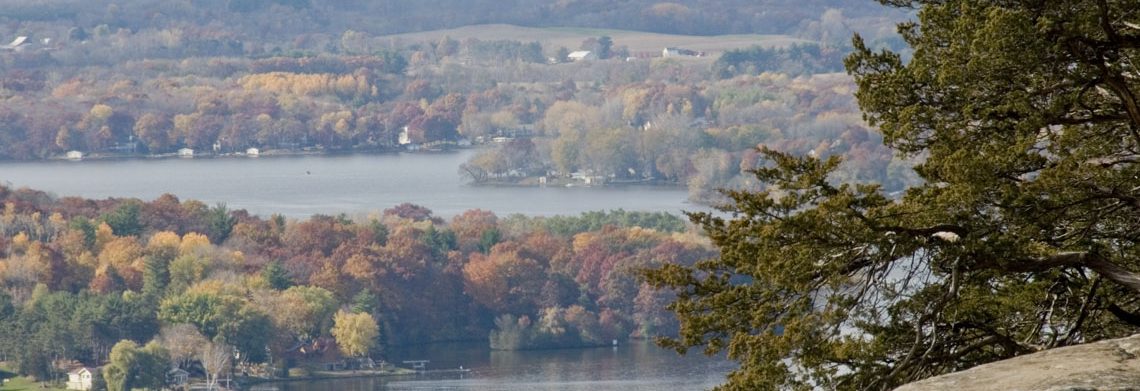Landowner Help for Common Reed Control

Landowners across southeastern Wisconsin know about common reed, an invasive grass that is even tougher than cattails. If this invasive species is on your hit list we have good news for you.
Description
Common reed (Phragmites australis), also called phragmites, invades moist habitats including lake shores, river banks and roadways. It has extensive rhizomes that can quickly spread underground and take over large areas. These rhizomes store energy, as a result, the plant can recover from cutting, burning or grazing.
Common reed alters hydrology and wildlife habitat, increases fire potential, and shades native species. It can spread through root fragmentation, long runners above ground, and sometimes windblown seeds or cut stem fragments. Phragmites is on the Wisconsin DNR Chapter 40 list of prohibited and restricted species.
According to the Wisconsin Wetlands Association, Phragmites is the tallest wetland grass in Wisconsin. It grows upwards of 14 feet. Seed heads are visible from August to September, and it has a round stem, long, wide leaves. Its prominent plume-like seed head that is whitish to purplish in color. Be aware, there is a variety of Phragmites native to Wisconsin that forms less dense patches (you can generally see through the stand) and flowers earlier (July to August).
The Midwest Invasive Plant Network (MIPN) is working in partnership with the U.S. Forest Service Region 9, to host a series of 3 webinars in January and February featuring case studies of the restoration of sites invaded with exotic pest plants.
Webinar

The first event will be on Tuesday, January 16th, 11:30 – 12:30 CST. The presentation is titled “Bridging the Gap – New Insights on Technology and on-the-ground Management of Phragmites.” The presentation will be given by Steve Apfelbaum, Founder and Chairman of Applied Ecological Services out of Brodhead, Wisconsin.
For free registration, please visit the MIPN site, and make sure the email address mipn@mortonarb.org is in your approved contacts to receive the webinar link.
